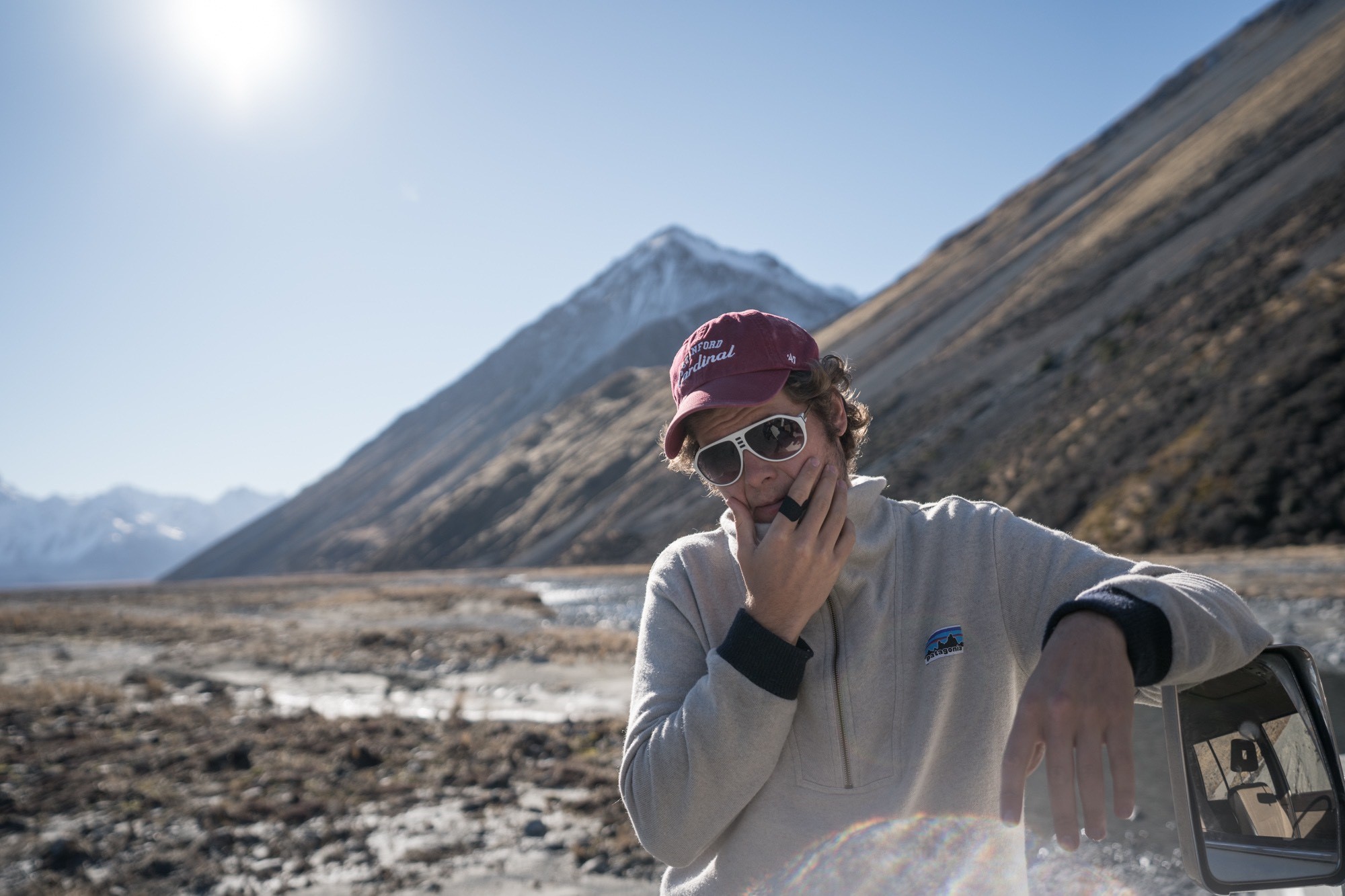Lucas Smith is on a mission to rid the world of used plastic bandages with his revolutionary merino wool product – and export markets are more than willing to buy it, writes Catherine Beard.
Nestled amongst a mountainous backdrop next to glacial blue Lake Tekapo, entrepreneur Lucas Smith is hard at work building his merino bandage business Wool+Aid.
He knows the territory like the back of his hand. At just 18, he left boarding school to work as a shepherd at Simons Hill merino wool station.
He quickly learned the day-to-day running of the station but when it came to shearing time questioned why there were few value-add channels for fine wool farmers to sell into.
With merino wool swirling in the back of his mind, he moved on to become a mountain guide on the Milford Track.
There he noticed hikers would inevitably get blisters and apply plastic plasters, which wouldn’t solve the problem.
“It committed me to spend my days picking up and carrying out plastic bandages left on the trail.”
Lucas discovered that 58 billion plastic bandages are disposed of every year.
Meanwhile, the young adventurer spent most of his free time mountaineering, hunting and skiing in merino garments.
“Two and two hit me like a tonne of bricks,” he remembers. “What if I designed an adhesive bandage from merino wool? After all, the merino fibre evolved over tens of thousands of years with the sole purpose of protecting skin from the mountain elements.”
He thought, at the very least his new business idea would help remove plastic from New Zealand’s national parks.
Eyes on the prize
Full of enthusiasm, Lucas drafted a business plan, saved his money and set out on an adventure that took him around the world of merino wool.
He took advice from Allbirds founder Tim Brown, Mons Royale founder Hamish Acland and Icebreaker founder Jeremy Moon.
It took him three years of research and development to build his first bandage prototypes and he finished up initial product testing in Alaska at the start of 2019.
“It’s been a big journey to set up and establish our own manufacturing,” Lucas says. “We’ve done that and now we’re setting about marketing and expanding sales through our online store and via our Alpine Ambulance Pop-up shop.”
In the early years, he had trouble finding manufacturing partners who could produce a super-premium merino wool fabric that met the performance specifications of his bandages.
The traditional fine wool channel was unavailable so, for his merino wool bandage idea to survive, he reverse-engineered his own merino wool supply chain.
“It was tough, lonely, expensive and time intensive but with a bit of Kiwi ingenuity, we got it done. Swimming against the current certainly makes one stronger.”
Time for reflection
Two years on, Lucas says he’s “incredibly proud” of the performance Wool+Aid’s merino wool bandages offer to customers.
“It’s been an epic journey of learning, listening, breaking things and bouncing back from failures. I’m proud that I was able to keep innovating through all the times where everything seemed insurmountable.”
About 30 percent of his products are exported. Lucas says being a Kiwi company has had its benefits.
“New Zealand is an outdoor enthusiast’s mecca. Our land is pure, clean and safe – just like our merino wool bandages.”
His advice for other entrepreneurs is to look after yourself both mentally and physically.
“Eat well, trust your gut, make time to sleep and continue to put one foot in front of the other.”
For now, Smith is looking forward to spending summer on the road with his Heritage Alpine Ambulance giving merino bandages out to Kiwis exploring our beautiful national parks.
Catherine Beard is executive director of ExportNZ and ManufacturingNZ, divisions of BusinessNZ, New Zealand’s largest advocacy body. Email [email protected]
This article was first published in the November 2019 issue of NZBusiness magazine.




